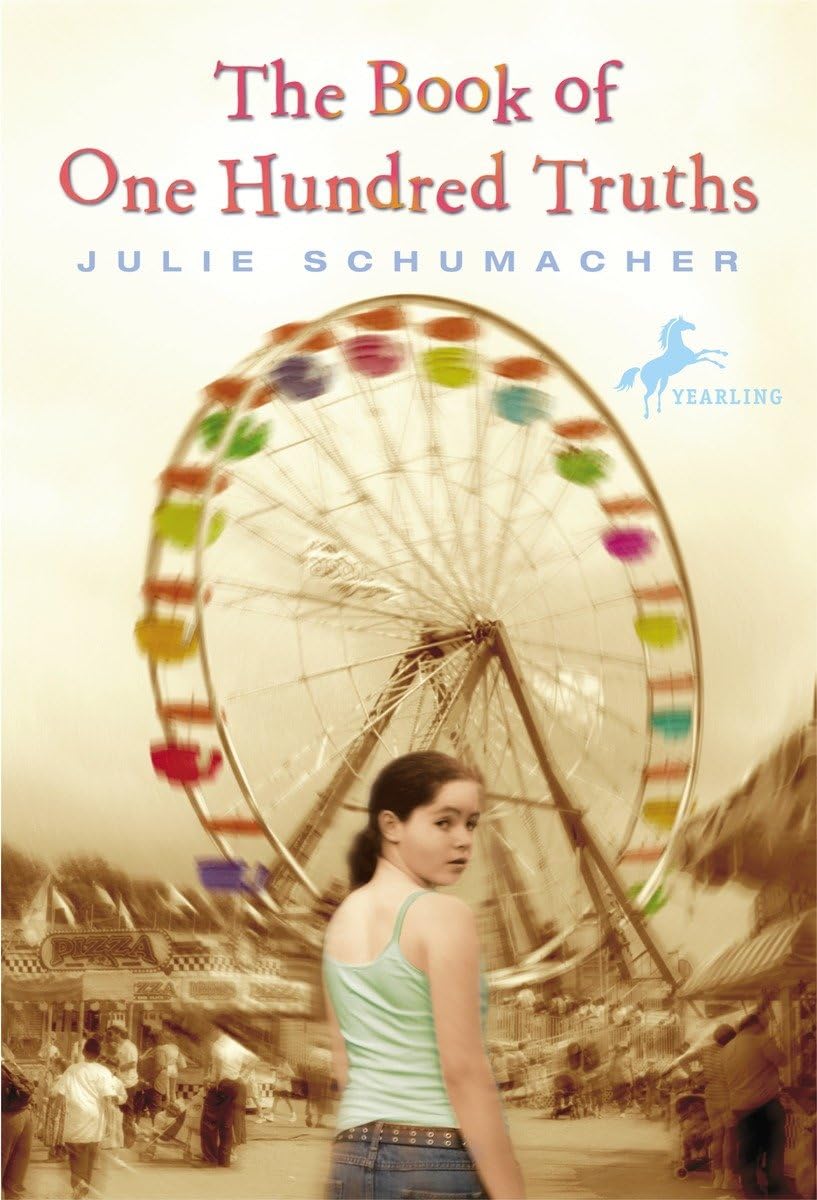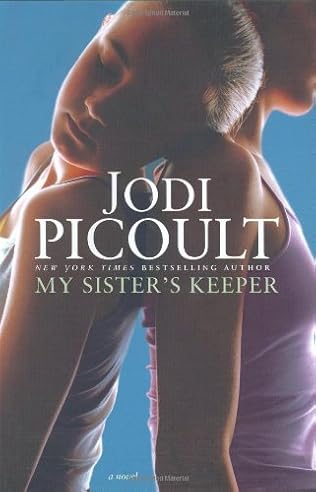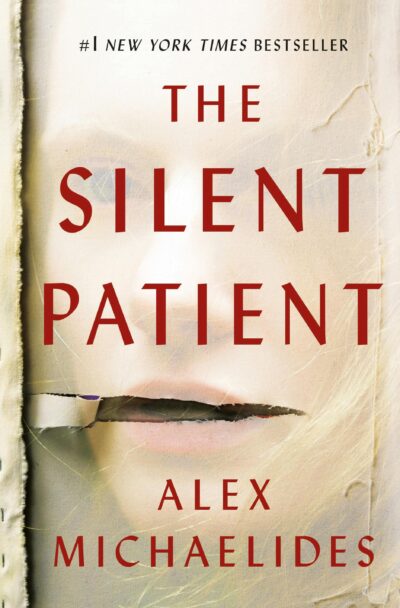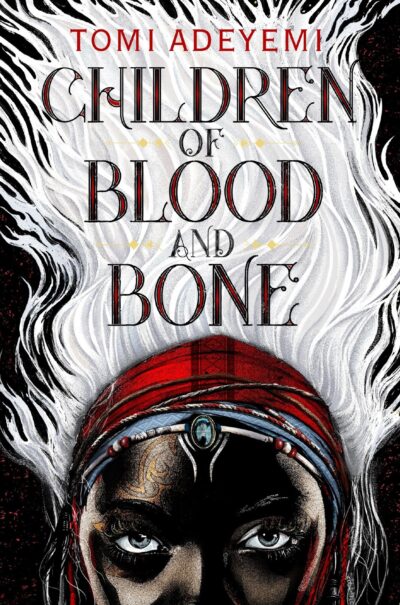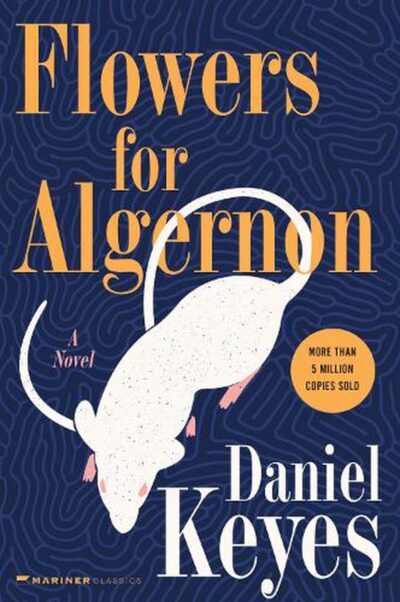Describing My Experience
When deciding what book to read for this assignment, I stared at my bookshelf and contemplated what book had been sitting there, unread, for the longest. I spotted The Book of One Hundred Truths and knew that it had been a present from my grandmother a pretty long time ago; I had just never gotten around to reading it. I noticed that, while it is still a novel, it is technically categorized as a children’s book as it is under Yearling, an imprint of the Random House Children’s Books division of Random House. Still, I did not want to automatically swear it off because of that. So many youth stories have powerful messages for readers of all ages and just because it is accessible for older children to read, doesn’t mean it is childish.
The story is from the perspective of 12-year-old Theodora Grumman, who, at the end of the first chapter, identifies herself as a liar. It mainly takes place throughout a summer vacation visiting family, where Theodora struggles with compulsively lying. While the compulsive lying may be a bit dramatic or exaggerated, I remember being that age and wanting to be an older, cooler version of myself. I think that compulsive lying was a coping mechanism for Theodora, a way to deal with the overwhelming mental and physical changes that happen during puberty. I was reminded of how the world feels to a middle schooler, with some aspects that I longed for and some I am glad are far behind me.
Classifying My Experience
Although I have not been a compulsive liar, I found identification with Theodora. I know what it’s like to be at a place in your life where you are trying to become more independent but still need the support of the people around you. Theodora feels underestimated by her parents and they nag her about remembering things, which makes her feel like they are treating her as a baby. It also makes her feel like they don’t trust her. Although I now feel that I have found a good balance between my parents supporting me and being independent, I remember the struggle as a young tween/teen. It is a hard time for both kids and parents to find a balance of trusting one another. I recall the mutual frustration.
A secondary experience that I had, which is not in our experience glossary, is nostalgia. According to the Merriam-Webster Dictionary, nostalgia is “a wistful or excessively sentimental yearning for return to or of some past period or irrecoverable condition” or “the state of being homesick.” I included the second definition because I had never thought of nostalgia that way. I also find that definition particularly relevant to The Book of One Hundred Truths because Theodora spends the summer with relatives in New Jersey, away from her parents and home in Minnesota. I would however like to make a caveat to the definition because I would like to argue that nostalgia is not always positive or necessarily wanting to go back to that time. Sometimes it can even be a visceral remembrance of how you felt at a point in time and never wanting to feel that way again. Theodora has a hard time with her relatives’ crowded house and wants to get away. My aunt, with her newborn baby, lived with my family when I was around Theodora’s age and I will never forget the feeling of being in a crowded house during the exact time when a kid begins to want their own space.
Features That Prompted My Experience
Towards the beginning of the book, when Theodora’s parents are getting ready to ship her off to the East Coast for the summer, they are frazzled and worry that she won’t remember everything. This quote illustrates being at that age and feeling like your parents are being overbearing,
Every summer since I was six years old, my parents had been sending me to visit my father’s relatives at the beach in New Jersey. They were always more anxious about it than I was. I liked eating lunch on the plane at thirty thousand feet, and I liked staying at my grandparents’ house, which was full of lumpy, mismatched furniture and old-fashioned wallpaper that would have been seriously ugly anywhere else.
Chapter 1 of The Book of One Hundred Truths (Schumacher 2)
Theodora knows her parents are anxious, but is just excited for the simple joys of a plane ride and to go to her grandparents’ house. She is ready, while her parents are probably just worried about her and want to make sure she gets there safely. Looking back, of course, it is warranted to make sure that a 12-year-old remembers things and gets to their destination safely, BUT I know that at that age I found it annoying. Theodora feels infantilized, the same way I did.
He gave my ticket to the flight attendant, who wrapped a paper bracelet around my wrist as if I were two years old instead of almost thirteen.
Chapter 1 of The Book of One Hundred Truths (Schumacher 4)
A passage from the book that exemplifies how Theodora felt in her relative’s family house is,
The problem with the “have fun and relax” idea was that it wasn’t easy to relax in a boxy old house with a dozen people, especially when at least half of them met my mother’s definition of eccentric.
Chapter 4 of The Book of One Hundred Truths (Schumacher 22)
This closely relates to my experience that I mentioned earlier, of feeling crowded in my own house when my aunt and her newborn baby lived with us. Funnily enough, I even relate to Theodora’s comment on her relative’s eccentricity. It is a joke within my immediate family that my mom’s side of the family is a bit kooky, and to have them around constantly in that period of my life was a unique experience.
I also felt nostalgic for the positive aspects of being a kid in summer again. Julie Schumacher’s (the author) writing is very descriptive and I found it easy to imagine the storyworld. In particular, there are multiple parts of the story where there is a description of the smells that Theodora experiences, and I found that feature prompted me to think of my childhood, as our sense of smell is the sense that triggers the most vivid memories.
“Thea! There you are. We’ve all been waiting for you,” my Nenna said, opening her arms at the top of the steps as I walked up. She smelled of suntan lotion and ripe fruit. “Look: you’re taller than I am,” she said. “Granda, come and see who’s here!”
Chapter 4 of The Book of One Hundred Truths (Schumacher 19)
Identifying Narrative Technologies
When I think of a storyworld and identifying the “rules” of a storyworld, I associate it with fantasy books. As someone who doesn’t usually read fantasy, trying to apply the idea of a storyworld to more realistic fiction is a bit daunting. Possibly because of this, I found it difficult to apply specific storyworld narrative technologies to The Book of One Hundred Truths. I instead was able to find some other non-storyworld narrative technologies. The first one that stood out to me was logic, which is a bit funny to say about a book that is meant to be from the perspective of a middle schooler. I say this because Theodora is very matter-of-fact with her feelings and inner dialogue, which is also ironic because she is a compulsive liar. Even though what she says is often a lie, she is very logical in her thought processes and backs up most of her thoughts with evidence or examples. Theodora also uses the narrative technology I voice, which made it even easier for me to place myself in her shoes. Additionally, I would argue that insinuation is used throughout, as Theodora is a snarky pubescent girl who often alludes to insults without actually spelling them out.
Works Cited
Experiences Glossary – Story & The Brain. https://unewhavendh.org/story-and-the-brain/experiences-glossary/. Accessed 10 Feb. 2025.
“Nostalgia Definition & Meaning.” Merriam-Webster, Merriam-Webster, www.merriam-webster.com/dictionary/nostalgia. Accessed 23 Feb. 2025.
Schumacher, Julie. The Book of One Hundred Truths. Random House, 2008.
Featured Image
Book cover for The Book of One Hundred Truths. Random House. All Rights Reserved.
